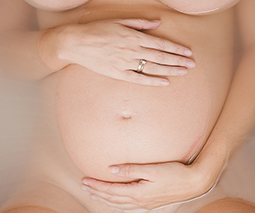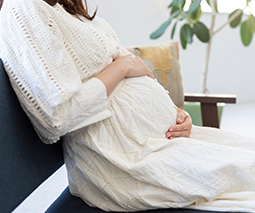Every day in the womb is crucial to baby’s brain development, study says

The closer a baby can be carried to full-term, the better as each day in the womb allows baby’s brain to develop, new research suggests.
The US research, published in Pediatrics, studied 205 participants – 75 preterm babies born before 32 weeks and 130 healthy control foetuses between 27 and 39 weeks gestation.
The study found third trimester brain volumes were reduced and brain growth was slower in the premature babies compared to those who made it closer to full-term.
A release by the Children’s National Health System explains that a foetus’ brain grows “exponentially” in the final 13 to 14 weeks of gestation, and an energy shift from the body to brain in utero allows for the “neurological growth spurt”.
“As the brain size increases four-fold, it develops critical structures and connections that will be relied upon for life,” the release says.
Brain growth interrupted
Before this latest study, Director of the Developing Brain Research Laboratory at Children’s National Health System and senior study author Catherine Limperopoulos, PhD says researchers knew brain growth was interrupted in premature babies but little was known about at what stage it began and the long-term effects.
“Up until now, we have been focused on examining what is it about being born too early? What is it about those first few hours of life that leaves preemies more vulnerable to brain injury?” Dr Limperopoulos says.
“What is really unique about these study results is for the very first time we have an opportunity to better understand the ways in which we care for preemies throughout their hospitalisation that optimise brain development and place more emphasis on those activities.”
When comparing to third trimester brain volumes, Dr Limperopoulos and her team found lower volumes in the cerebrum (responsible for speech, thoughts, emotions, learning and muscle function), cerebellum (responsible for balance, learning and social-behaviour), brainstem (responsible for carrying information between the brain, cerebellum and spinal chord) and intracranial cavity of the premature babies.
“What this study shows us is that every day and every week of in-utero development is critical,” Dr Limperopoulos says.
“If at all possible, we need to keep fetuses in utero to protect them from the hazards that can occur in the extra uterine environment.”









